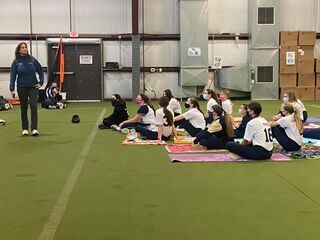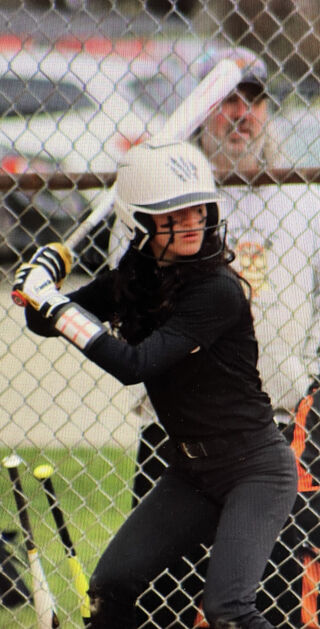How Are Sports Continuing to Evolve
If anybody has been following my blog, I often speak of a positive coaching climate and culture. I have never been one to have that mentality that everyone receives a medal, but I am a person, parent, and coach who understands the dynamics of a person's mental state and how they respond to others.
Parents often ask me, what changed in sports? Or are kids today just weak? There are a few answers to that question that I would like to address.
Sport has evolved over the years and so has the world we live in. Sports today have become like a business. That being said, the pressure that is placed upon young athletes today is often cultivated by very high expectations from not only parents but also from coaches. What can we do to provide an environment for these athletes and our children where there will be no stigma around asking for help? With pressure, commitment, and trying to please parents and coaches, these young people need resources. They need to feel supported at home and on the field or court.

Source: Laura Miele, Ph D
Tournament play begins for most travel sports at 8U. These children are exposed to more pressure than we were growing up. Travel teams pop up in more towns and become diluted with all skill level players; some of these teams are even national teams. National teams are able to place children of matching skill sets while others cannot. One of the issues I see with the coaches is that they bring on players of various abilities and skill levels just to field a team and call it a prospect team. They have unrealistic expectations and make promises to parents they cannot keep. Then these athletes are expected to perform at a higher level than they are capable of. Many of these players have so much catching up to do. Not that this is the issue but more often than not you see these kids giving it their all and typically falling short. Many do not have the mental or the physical skill set to satisfy the expectations placed on them.
I like to go to games of different sports and observe the team dynamics between the player and the coach. I see many players pulled out of a game due to one error. When athletes are pulled out of the game due to an error, they either know what they have done wrong now with no way to correct it from the bench, have no idea how to correct what they did wrong, or are afraid to ask the coach for help. This creates a helpless feeling and often strips the athlete of their confidence. These children do not want to let their coaches down.
Effective Communication
Effective communication is essential for the development of team cohesion, player self-confidence, and success. Coaches who demonstrate caring behavior, involve athletes in decision making, and want others to grow personally are associated with being more satisfied, mentally tough, task-oriented, and intrinsically motivated. This is based on observing coaching behaviors in competition. (Nicholls, 2022). It is necessary for all athletes to know if their coaches care and that they want to get to know them and if they want to help them be better not only as athletes but as people.
How the coaches respond is crucial to the mental state of their athletes is also key to athlete success. Here's where the question arises, Why not tough love? Why not push them? All athletes can be pushed and have tough coaching, but it's not one-size-fits-all. Know your athletes! These athletes are not weak, they have just different learning styles and circumstances. These athletes start earlier in tournaments, have loads of parental pressure, school pressure, and social media influence, and let's not forget the pandemic.

Source: Laura Miele, PhD
Players want to compete, learn, enjoy their teammates, and, most importantly, have fun. If playing is not fun then what is the point? This does not mean losing is fun but there is a way to create a relationship with your team that will create a sense of accomplishment. Many coaches do not have the tools to use "tough love" properly. They solely rely on what has been taught to them and expect it to work. Athletes are motivated by prompt, efficient, and positive feedback. Notice that I say prompt. For example, a player makes a mistake, and the coach says nothing and waits… the player makes another mistake… the coach should be able to identify immediately the body language of their player and provide positive instruction on what they did to cause that error and what to do the next time. Most importantly, let them know to keep their head up. I feel the same way about parents and how they react to their own children's mistakes. Let us not forget these are children who want to please their parents and coaches. Parents and Coaches remember your body language and how you react to an error is just as crucial to how the athlete responds. They see you! Stop blaming your athletes when you lose. You have some culpability on how they execute play and respond to their errors.
The coaches with the old-school mentality perhaps are expecting too much from players who are inexperienced. Not all athletes can handle the threat of a consequence. Coaches should realize how fragile an athlete can become. Success doesn't always equal perfection. It is vital as coaches to remember that athletes are not perfect either. Yes, we all want to win, who doesn't? Do you think a player goes into a game wanting to strike out or overthrow a ball, take a bad shot, or make a bad pass?
Take a breath, coaches, and remember what it's like to compete and what it was like to be a player How it felt to make a mistake. Sport still has to be fun. If not, what is the point, right?
I challenge any coach to join a league and play so they can remember the butterflies and consider how it feels when they mess up. Additionally, many athletes are becoming mechanical because they are so focused on the skill mechanics that it supersedes their natural ability. They begin to think on the field or court instead of just reacting to the play. Players should be told to trust their instincts and all of the hours of practice they have put into their sport.
The Importance of Play
Take time to practice playing a game. Go out and play some old fashion stickball. Take a rubber ball, no gloves, and let the athletes have fun and learn to respond naturally, instinctually to the movement of the ball. They will develop a better sense of movement because they won't be thinking—they will be reacting.
Children do not play anymore. Here is another answer to the questions posed earlier. What is different? Years ago, telephones were attached to the wall, televisions had five channels and there was no social media. Kids played! They competed, made their own rules, fought, and had fun. They did not have all of the proper mechanics, but they built a skill set of ability and athleticism. They would learn the strong survived and the others just hung in there. This was a time when parents did not come to one game and did not even know half of the time where their children were. This is not today! Today parents are working, pushing their kids to play on many sports teams and then eventually placing them on a travel team. Some parents sit back while others have unrealistic expectations for their kids to be super achievers on the field, in court, and in the classroom. What are we doing? We have to do better.
I always ask my coaches: Do you want to be the coach your athletes run through the fire for or the coach that they want to throw in the fire? This is important as athletes with a coach they know who cares for them and takes the time to know them will always get players who will go the extra mile.
Coaches and Parents
Studies often reveal that athletes respond to the coaches who are supportive and less punitive. This promulgates enhanced motivation and better decision making. There will always be a better reaction from athletes when they know or feel that their coach "has their back." Coaches have to recognize what their players are capable of and coach specifically to the strengths and limitations of that particular player. (Nicholls, 2022)

Source: Dave and Julie Robbins Compliments of Cooperstown studios
We need to be better as parents, coaches, and people with mental health awareness. All athletes need mental strategies to assist them to deal with. We need to know that there are life struggles, there a sport struggles, social struggles, and often hidden struggles. Let's all be cognizant that there are athletes fighting battles that we will never see. Be part of the solution, not the problem. Take initiative as parents and coaches to be proactive, support our athletes, and facilitate their learning and understanding. It does not all have to be fear-driven to produce a successful outcome.
I always tell my athletes to have short-term memory. Lately, I am telling my coaches the same thing. I am instructing them to pay attention to how they react and concentrate on their response. This is a crucial skill set that will allow athletes to grow. Coaches can easily stifle any hope of growth with athletes when they are afraid to make a mistake and play in fear. Let's create a culture that can be tough, fun and instill a love and passion that will last a lifetime.
Source: https://www.psychologytoday.com/us/blog/the-whole-athlete/202205/the-evolution-sports
0 Response to "How Are Sports Continuing to Evolve"
Post a Comment